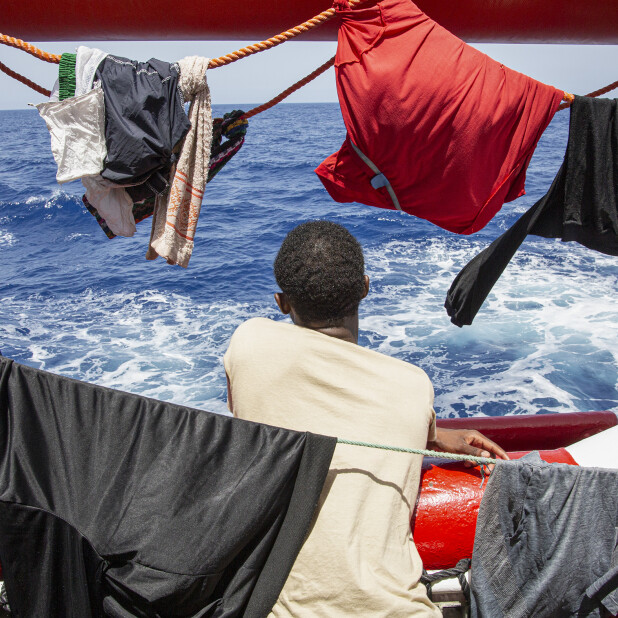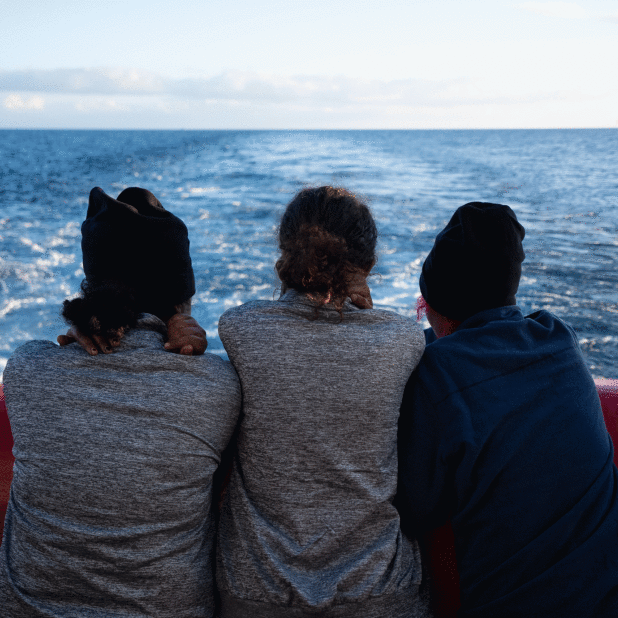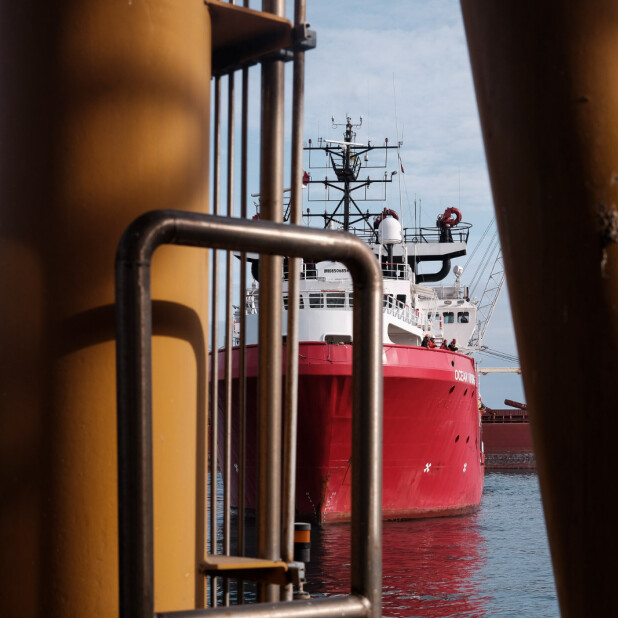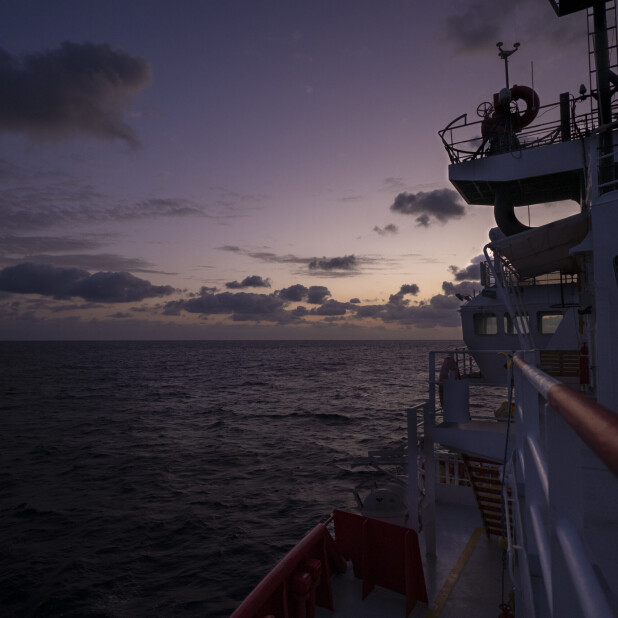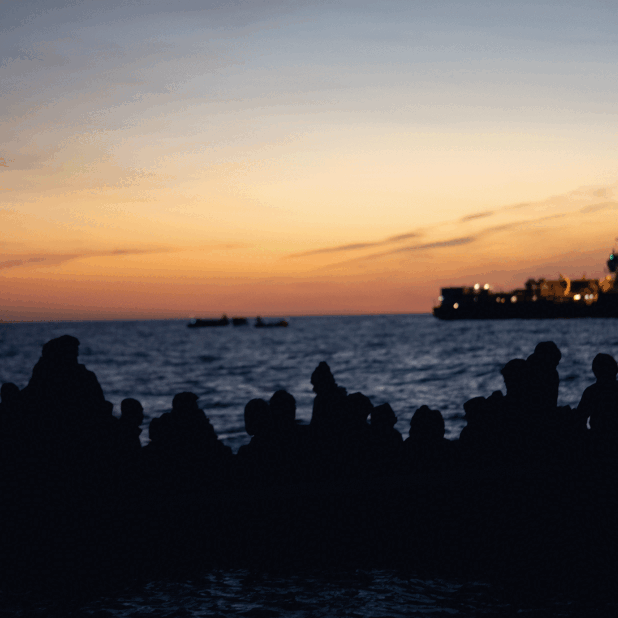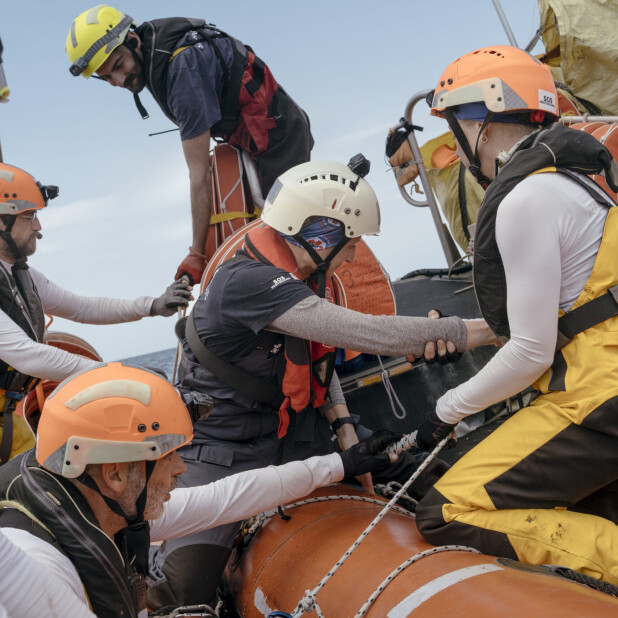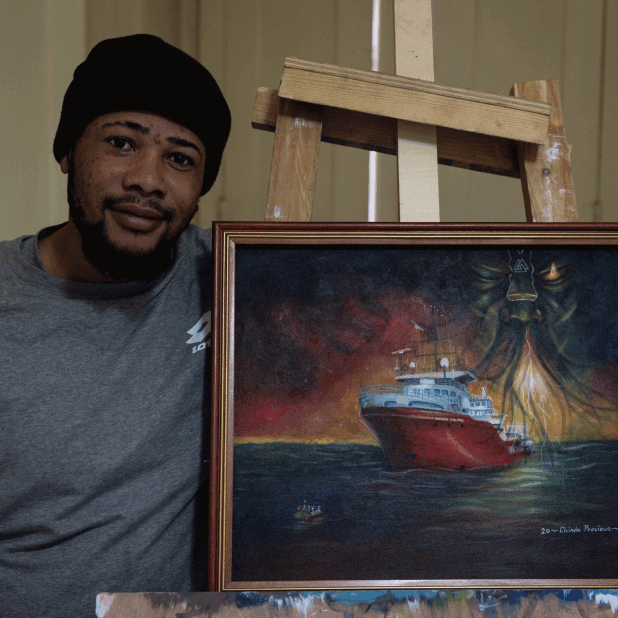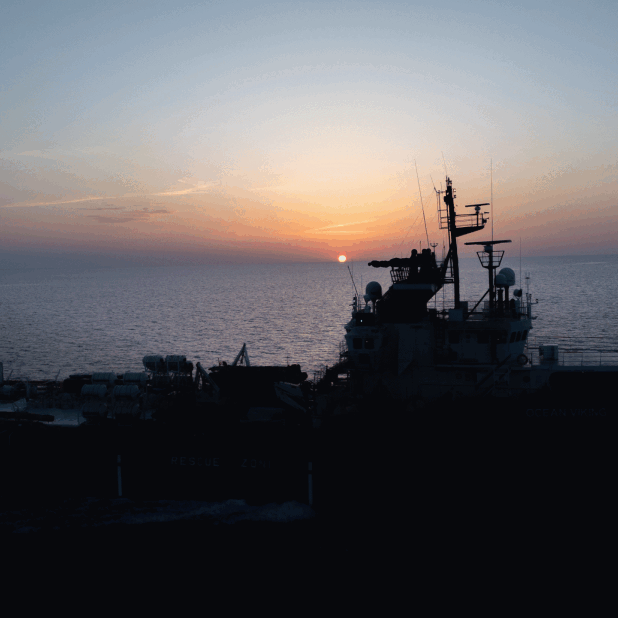
Borrowing from the codes of the grand adventure film, Italian director Matteo Garrone depicts the journey of a teenager thrust into the helm of a makeshift boat, despite the fact that he “doesn’t even know how to swim.” Leaving home, encountering traffickers, crossing the desert, enduring the “prisons” of Libya, and fleeing across the Mediterranean… This is the story of Fofana Amara. And it resonates accurately with the life stories of the individuals rescued by SOS MEDITERRANEE. An intersecting interview of an engaged filmmaker and the person who inspired “Io Capitano,” an “initiatory journey of a boy who will become a man.”
“The first time I watched the film, I remained speechless for over five minutes. Seeing the images that I have already experienced, images of torture, with the emotions you feel in the cinema… it’s not really easy.” But the young man who has built a life in Belgium is pleased to see how much the film resonates with both Western and African audiences and hopes it will contribute to “making people understand how difficult it is.”
Because while he has turned this page in his life, he notes that the Mediterranean Sea continues to claim victims, with more than 29,000 people losing their lives in the Mediterranean since 2014, the year of his journey: “I am still saddened because ten years after my journey, I see that nothing has changed. It’s still the same, it’s even worse.”
The director continues to express sorrow over the number of people who die each year trying to reach his country. But he can only support the rescue efforts of NGOs: “I think anyone who tries to save human lives is always on the side of righteousness and thus has my support, esteem, and admiration.”
“An adventure à la Jack London”
Matteo Garrone wanted to raise awareness and “give a voice to those who generally don’t have one, that is, make the film from their perspective, give the viewer the opportunity to subjectively experience the emotional journey they go through.”
“Fofana’s story stayed in my head for many years, and I remember that when I first heard it, I thought of those great adventure novels by Stevenson, Conrad, Jack London. Here is a boy who, at the age of 15, is responsible for safely taking 250 people on a boat without ever having driven a boat in his life.” For him, these young people are “the only true carriers of the contemporary epic.”
To be as fair and respectful of their journey as possible, he met with many young migrants, and “these contemporary heroes also accompanied me during filming. I was fortunate and privileged to work with actors and extras who had actually experienced this. They reconstructed, we reconstructed together.”
“I was really scared. But I didn’t want to show it because everyone was counting on me.”
Fofana, meanwhile, recalls the moment of the crossing with emotion. He was terrified but couldn’t back down. “There were 250 of us, including about 15 children and 25 women, and one pregnant woman. (…) It was tough. But we knew there was no other solution. Now, we had to go: either we arrive alive, or we all die. I was really scared. But I didn’t want to show it because everyone was counting on me. And the children asked me if we were going to make it. I promised them, I said: “yes, we are going to make it! We are fine, we will all make it!” But deep down inside me: “Oh dear! How am I going to do this?” he wondered, fear ridden, responsible, at 15, for the lives of 250 people.
Fofana’s favorite scene? “It’s the end that I really like, the moment when I say ‘me, captain! I am the captain!'”
Video Credit: 237 films


